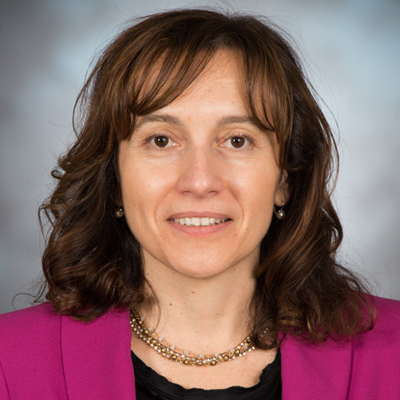Modeling chemical processes for renewable energies
Scientists are actively searching for sustainable and renewable sources of energy to support future generations. However, searching for energy sources can be costly and often ineffective. Therefore, researchers are finding new ways to develop energy-relevant processes. Dr. Laura Gagliardi is a theoretical and computational chemist who employs computational methods based on the fundamental laws of quantum mechanics to understand phenomena related to energy-relevant processes. Her research is playing a part in reducing greenhouse gases, understanding fundamental chemical processes, producing renewable energy sources, and finding ways to dispose of nuclear fuel. Dr. Gagliardi's computational models are an affordable and efficient way to investigate new materials, catalysts, and chemical processes that other researchers may be able to produce. Therefore, Dr. Gagliardi's research plays an incredible role in predicting solutions for a future for generations to come in which energy-relevant processes are improved and more sustainable options are available.
Dr. Gagliardi's research has a large impact on society. However, what makes her research especially unique is her use of computational modeling which allows her to address risky chemical problems because she does not have to deal with safety or pollution issues. Therefore, she and her team can do a lot of screening for the people who work in the laboratory and advise them on which experiments are worth setting up in the laboratory. This state-of-the-art computational predictive tool saves time and money for experimenters and provides them with new directions on how to address very exciting chemical problems.
Current research includes:
-
Reducing Carbon Dioxide: Dr. Gagliardi and her team are designing, using computational modeling, new materials that are aimed at the capture of carbon dioxide before it is released in the atmosphere from an industrial plant. This project hopes to address greenhouse gases.
-
Renewable Energy: Dr. Gagliardi and her team predict new catalysts that can be employed to produce some renewable sources of energy.
- Nuclear Fuel: Dr. Gagliardi studies chemical processes related to nuclear fuel chemistry. She and her team work with heavy elements that are typically radioactive. She and her team develop theoretical methods to study these challenging problems by understanding how chemical bonds regulate these processes. Dr. Gagliardi and her team hope to find ways to dismantle plants without negative ramifications.
Bio
Dr. Gagliardi has always been fascinated by basic sciences, like math, physics, and chemistry. She accomplished her undergraduate studies as a chemist, but along the way, she realized she was interested in both chemistry, math, and physics. Dr. Gagliardi wanted to study chemical processes but also understand why they happened in a certain way, and how one could modify and control them by studying the fundamental laws of quantum mechanics. Despite her early interests in the sciences, her career path is less conventional than many other scientists. She was raised and educated in Italy and then started an independent career in Switzerland. In 2009, she chose to move to the United States as a researcher where she has found much success. Her broad cultural experience not only allows her to merge different cultures but also to approach problems in an innovative way with a diverse team of scientists working alongside her. In addition to her own professional career, Dr. Gagliardi also encourages future female scientists to pursue the many excellent careers in science. In her spare time, Dr. Gagliardi enjoys playing the piano, hiking, trying new restaurants, and riding her bicycle. But she is perhaps most happy when visiting her home country of Italy.
Publications
Videos
Awards
Distinguished Mcknight University Professorship, University of Minnesota, 2014
Swiss National Science Foundation, 2010
Annual Award of the International Academy of Quantum Molecular Science to scientists under 40, 2004
"for her innovative contributions to prediction and understanding of new inorganic molecules using quantum chemical methods"


